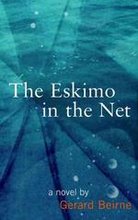Modelling Languages Demise
Dead Beat was recently bemoaning the death of language. His buddies meanwhile over at the Department of Theoretical and Applied Mechanics, Cornell University, got on the blower.
"All is not lost, Dead Beat."
"How so?"
"Mathematical modelling."
"Oh, now you're talking my language."
"See we developed a simple model of language competition that explains historical data on the
decline of Welsh, Scottish Gaelic, Quechua (the most common surviving indigenous
language in the Americas) and other endangered languages. A linguistic parameter that
quantifies the threat of language extinction can be derived from the model and may
be useful in the design and evaluation of language-preservation programmes."
"More, more."
"Previous models of language dynamics have focused on the transmission and evolution
of syntax, grammar or other structural properties of a language itself. In contrast,
the model we describe here idealizes languages as fixed, and as competing with each
other for speakers."
"Don't stop."
"Consider a system of two competing languages, X and Y,in which the attractiveness of
a language increases with both its number of speakers and its perceived status (a parameter
that reflects the social or economic opportunities afforded to its speakers). Suppose
an individual converts from Y to X with a probability, per unit of time, of Pyx(x,s),
where x is the fraction of the population speaking X, and 0 less than or equal to 1 is a measure of X’s relative status. A minimal model for language change is therefore dx/dt=yPyx(x,s)-xPxy(x,s)."
"Gosh darn, of course it is."
"Contrary to the model’s stark prediction, bilingual societies do, in fact, exist. But the
histories of countries where two languages coexist today generally involve split populations
that lived without significant interaction, effectively in separate, monolingual
societies. Only recently have these communities begun to mix, allowing language
competition to begin. So what can be done to prevent the rapid
disintegration of our world’s linguistic heritage? The example of Quebec French
demonstrates that language decline can be slowed by strategies such as policy-making,
education and advertising, in essence increasing an endangered language’s status."
"Bingo!"
"Speaking of Bingo Dead Beat. I did a mathematical analysis........









